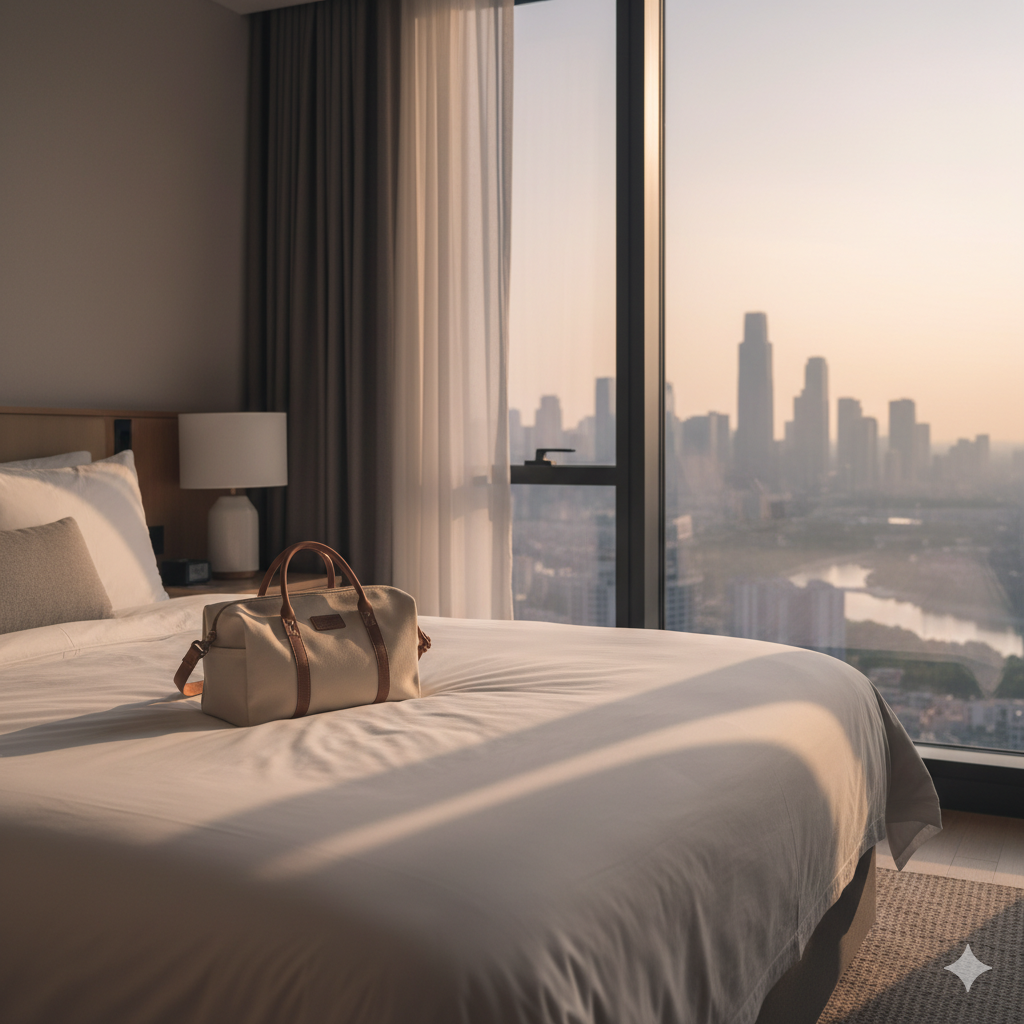What’s Driving the Micro-Travel Boom
Call it the new weekend revolution. Around the world, travelers are squeezing more adventure into shorter windows — think one to three days, door-to-door. Deloitte’s 2025 Summer Travel Trends reports that nearly two-thirds of travelers plan multiple “quick getaways” a year, even amid tighter budgets. Recent Google Trends data shows a significant increase in searches for terms like 'weekend getaways' and 'mini getaways near me,' reflecting a growing interest in short local travel
Micro-travel isn’t about cutting corners — it’s about maximising refreshment per hour.
Micro-Trip vs. Big Vacation: What’s the Difference?
Factor | Micro-Trip (1–3 days) | Week-Long Vacation |
Time off | Usually none or 1 day | 3–10 days |
Planning | Simple: one base + two key stops | More complex |
Cost | Lower, repeatable | Higher, occasional |
Stress | Light and flexible | Logistics-heavy |
Ideal for | Quick recharge | Deep immersion |
Micro-trips don’t replace big adventures — they make travel a regular rhythm, not an annual event.
The 48-Hour Blueprint: How to Make It Happen
Planning a micro-trip shouldn’t feel like managing a campaign. Use this quick framework:
1. Pick Your Theme
Choose one focus — food trail, coastal escape, cultural fix, or nature recharge. ➡ Pro tip: Center each day on one “anchor” experience — the rest can stay spontaneous.
2. Set a 3-Hour Radius
Whether it’s a train, car, or short flight, keep travel time under three hours each way. Skyscanner notes that regional hops and fast trains dominate 2025’s “short-break” bookings.
3. Choose One Base
Stay central and walkable. One base saves hours of unpacking and transit — and leaves room for café wandering and local discovery.
4. Pack Micro-Smart
A 35-40 L weekender or cabin backpack is all you need. Packing searches have jumped globally this year, with “one-bag travel” up over 40 % in Google Trends.
Sample 48-Hour Itinerary
Day 1 (Afternoon–Evening)
Arrive, drop bag, and stretch your legs on a neighbourhood walk.
Try a local market dinner or casual wine bar.
End the night with a skyline or waterfront view.
Day 2 (Full Day)
Morning anchor: gallery district, nearby trail, or old-town food crawl.
Lazy lunch, then explore a second neighbourhood.
Sunset lookout + one memorable meal to cap the day.
Day 3 (Morning)
Slow coffee, short local browse, early lunch, and head home.
Editor’s note: Don’t over schedule — two anchors max. Serendipity is the secret ingredient of micro-travel.
Five Micro-Trip Formats That Work Anywhere
Rail-First City Pair — Two connected cities ≤2 h apart (e.g., Paris ↔ Lyon, Tokyo ↔ Hakone).
Nature on the Edge — Big city to nearby trails or beaches within 90 min.
Culture Cluster — Museum quarter + food market + local performance.
Ferry Triangle — Short island hops or coastal loops for a dose of water and calm.
Festival Fix — Time a mini escape to a seasonal event or flower bloom.
Booking.com’s 2025 Travel Predictions explore how travelers are redefining norms and seeking more authentic, personalised experiences.
Quick-Check Packing List
✅ Travel time each way ≤3 hours
✅ One base near transit
✅ Two anchors max
✅ Weather + hours saved offline
✅ Small bag; laundry optional
Budget-Friendly Tricks
Value your time: a 300 km train can beat a 60 km drive if it’s direct.
Book off-peak: shoulder-season weekends are quieter and cheaper.
Eat local: mix one splurge meal with market snacks.
Find free anchors: parks, libraries, city lookouts, and art walks — timeless and global.
Deloitte’s latest traveler insights show a 22 % uptick in “value-first” decision-making, reinforcing this approach.
Pitfalls to Avoid
Over planning — resist the urge to tick boxes.
Airport time traps — short flights often cost you hours in transfers.
Ignoring schedules — check Sunday or holiday transit gaps early.
Crowds — if you’re chasing a festival, arrive one day before the rush.
Why Micro-Trips Keep Readers Coming Back
Micro-travel content has lasting pull: it’s evergreen, endlessly localizable, and visually snackable. Each new weekend or destination offers a chance to update guides, share itineraries, or remix ideas for another region — perfect for ad-driven lifestyle platforms.
FAQ
1. Is micro-travel just a Western concept? No — from Europe’s rail cities to Asia’s regional flights, short escapes are now mainstream worldwide.
2. How far can I go? Three hours is the magic number. Beyond that, transit eats your vacation.
3. Do quick trips cost more per day? Sometimes, but overall spend stays lower — you’re booking fewer nights.
4. How do I handle bad weather? Plan one indoor anchor (museum, market) and one outdoor (park, waterfront). Swap as needed.
5. Is there data behind this? Yes — Deloitte (2025) confirms that short, high-value breaks are among the year’s top travel patterns.



